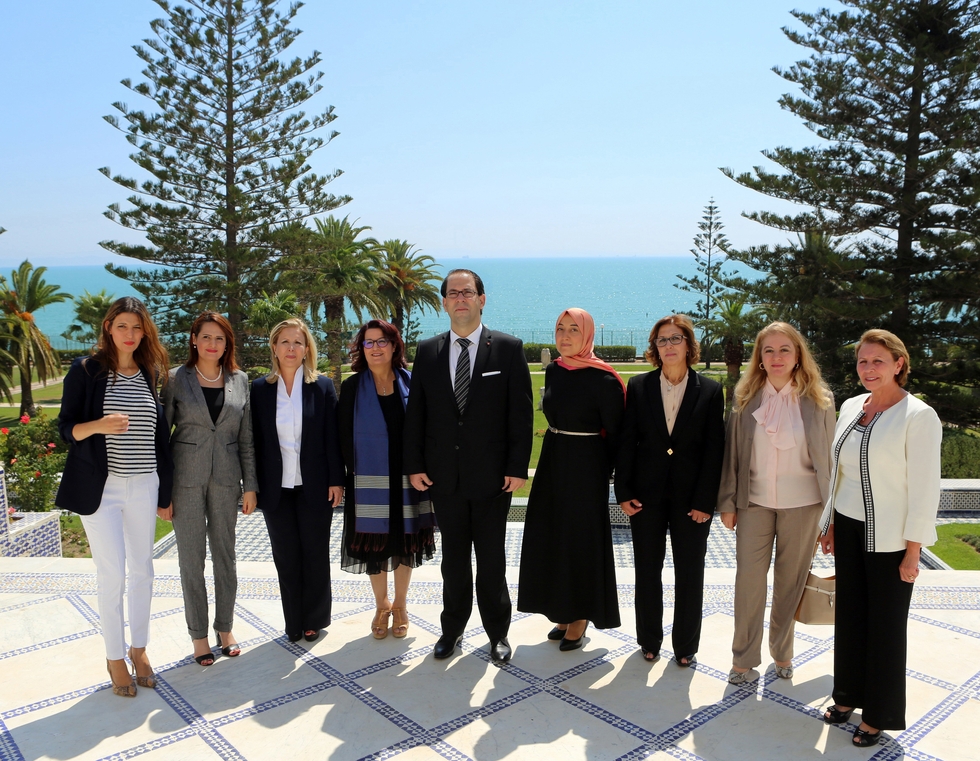Tunisia’s conundrum: Compromise or radical change

Tunisia has just approved its fifth democratically mandated government in five years. The Arab world’s only liberal democracy is shortly to have a new “national unity government” headed by 40-year-old Youssef Chahed. This rainbow coalition brings together ministers from five political parties, independents and trade unionists, as well as eight female cabinet members out of 41 (still too few but an improvement on previous governments).
It replaces a coalition government in place since October 2014, which lost the confidence of parties and parliament in June due to the slow pace of change and unfulfilled promises of reform and economic revival.
Tunisia has made more democratic progress than any other Arab country before it. Managing to keep the country afloat amidst a sea of chaos and counter-revolutions, while completing four peaceful and democratic transfers of power is a small miracle when compared with the tragic fates of other Arab Spring countries. This latest change in government represents the best of Tunisia’s political culture – an uncanny ability to get political actors around the table to resolve problems through negotiation and dialogue, while respecting the democratic rules of the game.
However, it also represents the weaknesses of Tunisia’s transition – the need to find solutions that please everyone, which consequently prove difficult to implement. By including a broad spectrum of political parties, the new government creates a more stable support base, which potentially makes it easier to pass reforms. Including ministers from the national trade union, the UGTT, in particular is designed to draw the union in and persuade them to support the government’s reforms. The union has supported thousands of strikes over the past five years that have crippled the economy and resulted in huge losses. However, broadening the coalition also means making decision-making more complicated – reaching agreement among 41 members of a cabinet from five different parties with heterogenous political ideologies will be a constant balancing act.
But maintaining a constant balancing act is exactly what Tunisia has learned to do best over the past five years. Its transition has been sustained thanks to a complex system of compromises and power-sharing. When protests disrupted the national assembly in 2013 and opposition members withdrew from the constitution-drafting process, the parties in power (Ennahdha, Ettakattol and CPR) stepped down under a negotiated settlement to make way for a neutral caretaker government. When bitter political rivals, Nidaa Tounes and Ennahdha, went head to head in the October 2014 elections, the spectre of instability emerged once again with the return of a polarised and divided discourse. The parties, who came first and second, managed to forge a fragile stability by entering into coalition. This capacity to step back from the brink and resolve conflict through dialogue holds valuable lessons for other transitions in the region.
However, it also carries a price. An inclusive approach to governance means more negotiation, more compromise and a slower pace of change. It is hard to create radical change while taking everyone with you.
The problem is that Tunisia needs radical change in many fields – the economy is unable to produce the growth or jobs desperately needed. Changing it requires drastic reforms to the economic model, including reforming a bloated bureaucracy and labour laws, shaking up existing industries such as tourism, and cracking down on corruption and cartels that are strangling many sectors.
In each of these fields, strong vested interests stand firmly against any change, seeking to protect the status quo. Until now, they have largely succeeded – business elites have thwarted anti-corruption efforts, the administration continues to resist even basic reforms such as the introduction of e-administration, and trade unions have blocked many public sector reforms and succeeded in pushing public sector wages up. As a result, government debt has reached 69 percent of GDP, corruption has increased, and Tunisia now spends 13.5 percent of its GDP and almost 60 percent of tax revenues (one of the highest rates in the world) on paying the salaries of 800,000 public sector workers, leaving less money for public services and investment.
An example of these challenges is tax fraud – 50 percent of Tunisian businesses do not declare their income according to Ministry of Finance figures, and a mere 2 percent of companies pay 80 percent of taxes, a dangerously narrow tax base. It is an open secret that many of the self-employed – small businesses, lawyers and doctors in the private sector – routinely under-report their income in order to avoid taxes.
Some doctors in the private sector are earning as much as 180,000 dinars a year (73,000 euros) while paying income tax of as little as 5000 dinars (2000 euros) a year. Earlier this year, the government announced plans to introduce a new system that would require doctors to issue receipts to patients as a way of tracking income. But after a huge mobilisation by doctors and the private medical lobby, the government backed down and the plans were quietly dropped.
This raises the question: is it possible to sustain a peaceful democratic transition while undertaking radical reforms? Tunisians clearly value the democratic achievements they have made – the 2016 Arab Barometer survey found that 86 percent of Tunisians believe that democracy is the best system of governance, despite its problems. However, the economic demands of the revolution – tackling poverty, unemployment, regional inequalities and corruption - have proved much harder to achieve, because they require much deeper structural change that directly threatens entrenched interests.
It seems Tunisians forced to choose between the economic status quo and stability on the one hand, and real change and political turmoil on the other.
The political rules of the game have changed – now political actors have to find a way of changing the economic rules while maintaining stability. Whether they succeed or not will come down to whether this government has the leadership and political will needed to take on reforms – and whether its members are more willing to risk the wrath of vested interests if they succeed, or the wrath of the public if they fail.
- Intissar Kherigi is a Tunisian-British researcher and PhD student at Sciences Po Paris in Comparative Political Sociology. She holds a BA in Law from Kings College, Cambridge University and a Masters in Human Rights from the London School of Economics and Political Science. She is a qualified solicitor and has worked in the UK House of Lords, the United Nations and the European Parliament.
The views expressed in this article belong to the author and do not necessarily reflect the editorial policy of Middle East Eye.
Photo: A handout picture provided by the Tunisian Presidency Press Service on 27 August 2016, shows Tunisian new Prime Minister Youssef Chahed (C) posing with the female members of his cabinet after the new government swearing-in ceremony at Carthage Palace, near the capital Tunis. (AFP)
This article is available in French on Middle East Eye French edition.
Middle East Eye propose une couverture et une analyse indépendantes et incomparables du Moyen-Orient, de l’Afrique du Nord et d’autres régions du monde. Pour en savoir plus sur la reprise de ce contenu et les frais qui s’appliquent, veuillez remplir ce formulaire [en anglais]. Pour en savoir plus sur MEE, cliquez ici [en anglais].


